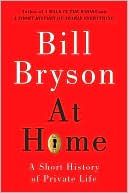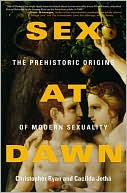Bohemian Paris: Culture, Politics, and the Boundaries of Bourgeois Life, 1830-1930
Exotic and yet familiar, rife with passion, immorality, hunger, and freedom, Bohemia was an object of both worry and fascination to workaday Parisians in the nineteenth century. No mere revolt against middle-class society, the Bohemia Seigel discovers was richer and more complex, the stage on which modern bourgeois acted out the conflicts of their social identities, testing the liberation promised by post-revolutionary society against the barriers set up to contain it. Turning life into art,...
Search in google:
"The central attraction of this study lies in its imaginative grasp of these remarkable denizens (both declared and undeclared) of bohemia. Mr. Seigel has written a cultural history that respects the complex entanglements found in both life and art, and that is no mean feat." — Arnold Weinstein, New York Times Book ReviewExotic and yet familiar, rife with passion, immorality, hunger, and freedom, Bohemia was an object of both worry and fascination to workaday Parisians in the nineteenth century. No mere revolt against middle-class society, the Bohemia Seigel discovers was richer and more complex, the stage on which modern bourgeois acted out the conflicts of their social identities, testing the liberation promised by post-revolutionary society against the barriers set up to contain it. Turning life into art, Bohemia became a space where many innovative and original figures — some famous, some obscure — found a home."The research that went into Bohemian Paris turns up some treasures — the very stuff of history... This highly readable book probes further than any other I know into the reciprocating movements that connect and distinguish bohemia and bourgeois." — Roger Shattuck, New York Review of Books"This is an enormously useful approach to a complex phenomenon... It also brings together a dazzling assortment of individuals, from such well-known figures as Baudelaire, Courbet, Zola, Manet, Verlaine, and Rimbaud to such relatively obscure figures as the writer Henry Murger and the cabaret owner Emile Goudeau." — Jay Tolson, Nation"It deserves to be read... for the skill with which it explores an ever-interesting tract of cultural history." — John Gross, New York Times
AcknowledgmentsList of IllustrationsPt. IBohemians and Bourgeois1Ch. 1The Boundaries of Bohemia3Ch. 2A Country Explored: Murger31Ch. 3Politics, Fantasy, Identity: Bohemia in the Revolution of 184859Ch. 4The Poet as Dandy and Bohemian: Baudelaire97Ch. 5The Other Bohemia and Its Uses125Ch. 6Friends and Enemies150Ch. 7"A Fatal Scent of Liberty": Bohemia and the Commune of 1871181Pt. IIPublic Worlds and Inner Lives213Ch. 8Publicity and Fantasy: The World of the Cabarets215Ch. 9Compulsion and Disorganization242Ch. 10Cults of the Self269Pt. IIIFrom Bohemia to the Avant-Garde293Ch. 11Temperament, Narcissism, and Provocation295Ch. 12Art and Life in Montmartre336Ch. 13Dissolving the Boundaries366Documentation399A Note on Histories of Bohemia401Notes405Index441
\ New York Times Book ReviewThe central attraction of this study lies in its imaginative grasp of these remarkable denizens (both declared and undeclared) of bohemia. Mr. Seigel has written a cultural history that respects the complex entanglements found in both life and art, and that is no mean feat.\ — Arnold Weinstein\ \ \ \ \ \ New York Review of BooksThe research that went into Bohemian Paris turns up some treasures—the very stuff of history... This highly readable book probes further than any other I know into the reciprocating movements that connect and distinguish bohemia and bourgeois.\ — Roger Shattuck\ \ \ \ NationThis is an enormously useful approach to a complex phenomenon... It also brings together a dazzling assortment of individuals, from such well-known figures as Baudelaire, Courbet, Zola, Manet, Verlaine, and Rimbaud to such relatively obscure figures as the writer Henry Murger and the cabaret owner Emile Goudeau.\ — Jay Tolson\ \ \ \ \ \ New York TimesIt deserves to be read... for the skill with which it explores an ever-interesting tract of cultural history.\ — John Gross\ \ \








